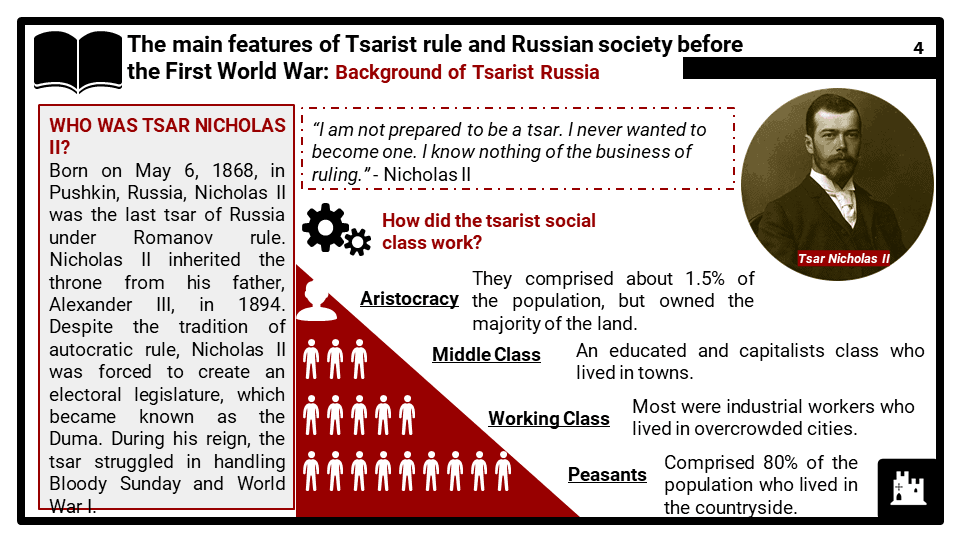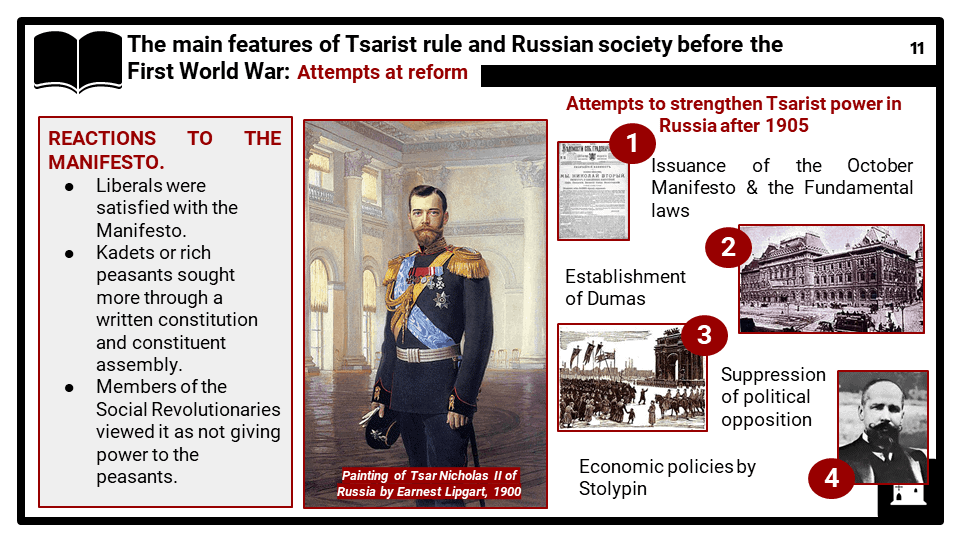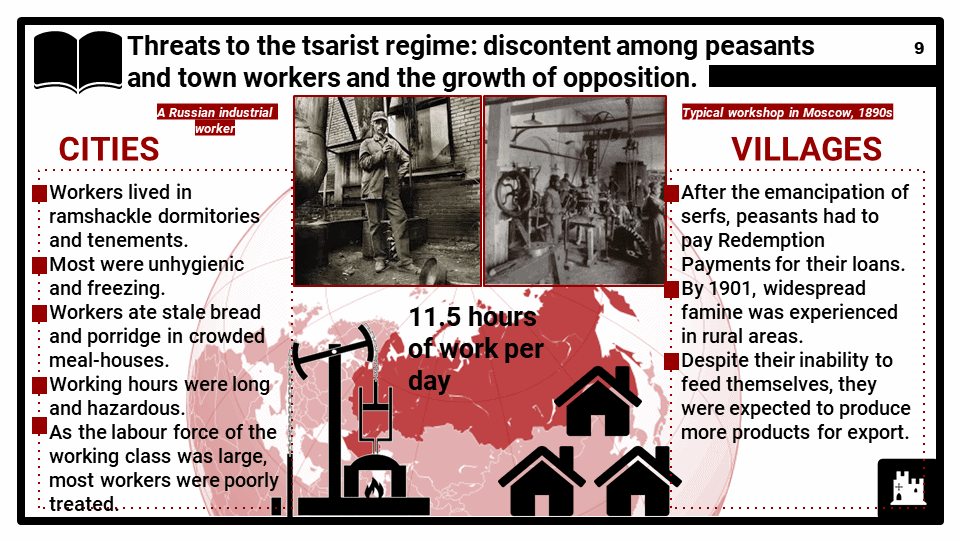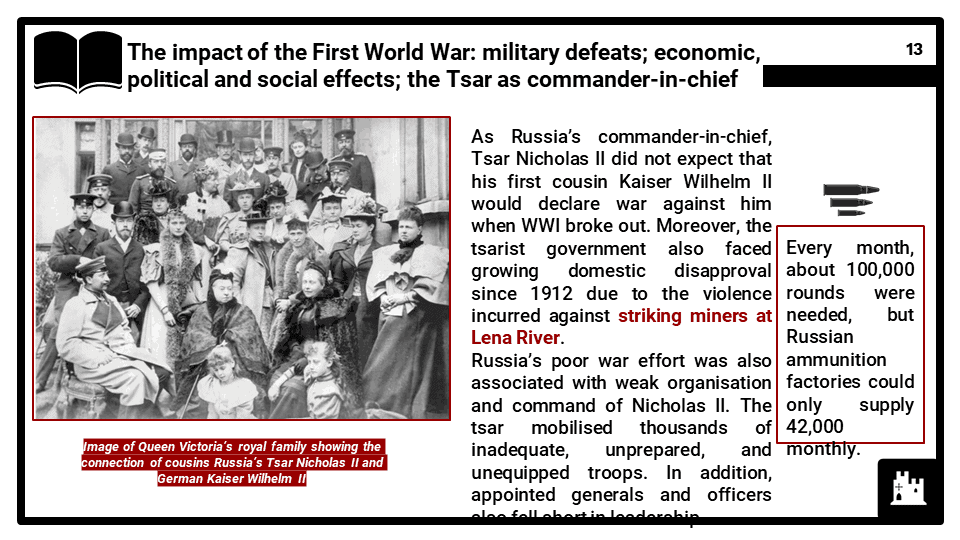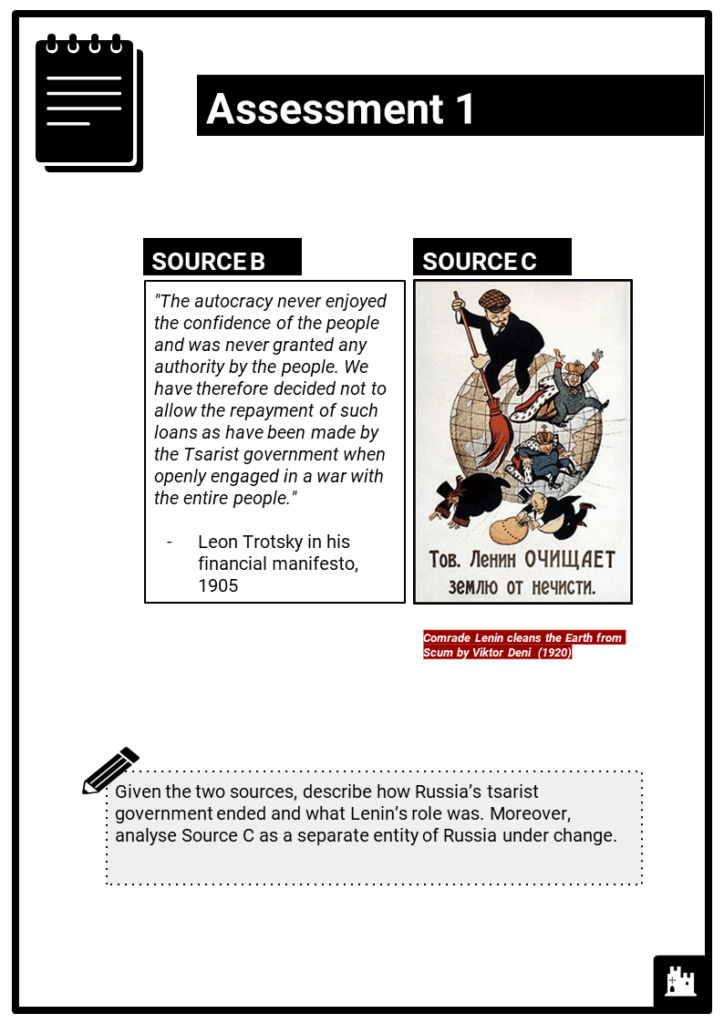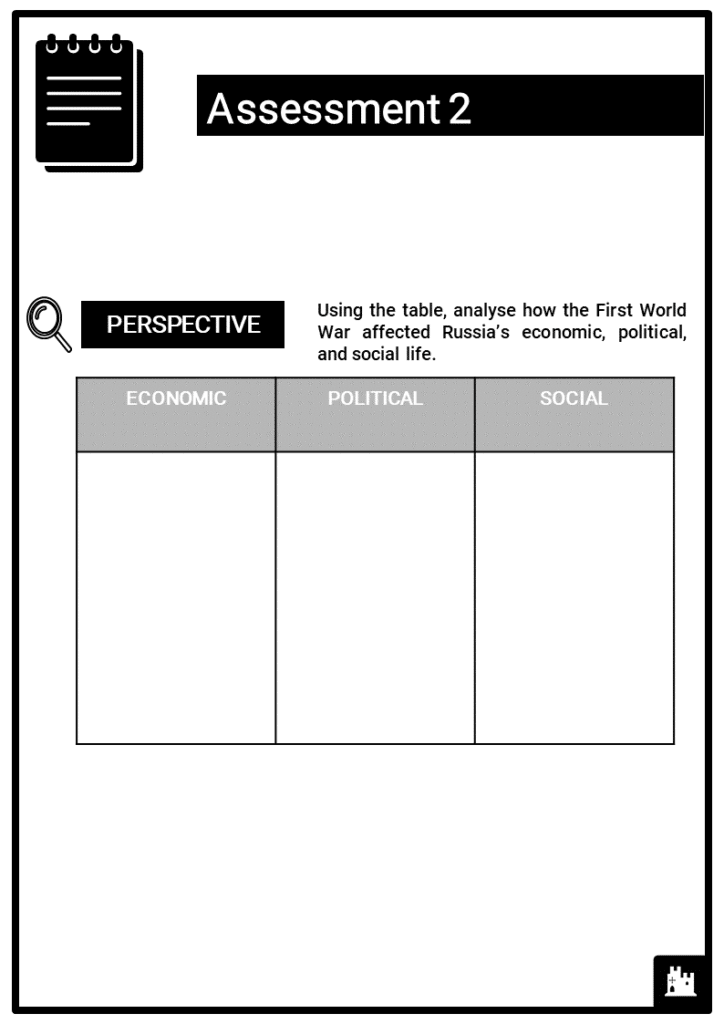Teach any WJEC module : Russia in Transition, 1905-1924, no prep needed!
Do you want to save dozens of hours in time? Get your evenings and weekends back? Be fully prepared to teach any WJEC GCSE topic?
Every WJEC topic is covered, and each module comes complete with:
Studies in Depth – History with a European / world focus
Written examination: 1 hour 25% of qualification 50 marks (plus 3 marks for spelling, punctuation and grammar and the use of specialist language)
Learners study one Study in Depth from four options in total. This unit focuses study on a substantial and coherent short time scale in the history of a society in Europe or the wider world. This unit will provide learners with the opportunity to understand the complexity of a society in the history of Europe or the wider world more effectively. This unit also allows learners the opportunity to study history within a wider geographical context. This unit encourages learners to use a wide range of historical sources. Learners will also have the opportunity to create a variety of historical responses.
Unit 2: Studies in Depth
Sub-section: History with a European / world focus
Module: 2A Russia in Transition, 1905-1924
This option focuses in depth on selected themes and issues relating to the history of Russia from 1905 to 1924. Candidates will be required to consider the causes and impact of the Revolutions of 1917, the Civil War in Russia and the impact of the development of the Communist state on Russia. Candidates should develop their understanding of the period through explanation and analysis of key concepts such as causation, change and continuity and significance and through analysing and evaluating a range of source material. The required content below shows which key features and characteristics of the period must be studied.
Key Questions and Required Content
- Russia up to 1914: What were the main problems facing Russia between 1905 and 1914?
- The 1905 revolution: causes, events, results; growth of opposition groups; criticism of autocracy and increasing unpopularity of the monarchy; Stolypin's reforms; the influence of Rasputin.
- The impact of the First World War, 19141917: How did the First World War affect Russia?
- The outbreak of war; initial success and later military failings; incompetent military leadership, the role of the royal family; growing hardship at home; growth in opposition.
- The 1917 Revolutions What were the main features and consequences of the 1917 revolutions?
- Main events of February 1917; the Provisional Government and abdication of the Tsar; the main events between February and October 1917; the October Revolution; the roles of Lenin and Trotsky; the immediate consequences of revolution.
- The civil war, 1918-1921: What were the main developments in Russia during the civil war?
- Causes of the Civil War; intervention of foreign powers; role of the White Generals; role of the Red Army; murder of the royal family; reasons for the victory of the Reds.
- Lenin's ideas: Why did Lenin introduce the New Economic Policy and how successful was it?
- The condition of Russia in 1921; the effects of War Communism; the Kronstadt mutiny; the main features of the New Economic Policy; its impact on Russia.
- Life in early Communist Russia: Did Lenin succeed in establishing a Communist state in Russia?
- Organisation of the CPSU; the Comintern; the role of the Cheka and Red Terror; government control of key aspects of the economy: industry, banking, transport, foreign trade; changes for women; education, culture and religion; propaganda and censorship.
- The importance of Lenin: What was Lenin's legacy to Russia?
- Lenin's declining health and influence; possible successors: Trotsky and Stalin; Stalin's scheming to assume the leadership; Lenin's contribution as party leader; his prestige and determination.

